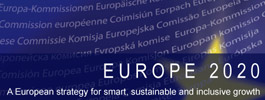by John F. Ryan, Acting Director, European Commission Directorate-General Health and Food Safety

The 2nd Health Programme 2008-2013 has proven to be a useful tool to foster the development and facilitate the implementation of EU health policy. It supported Member States in addressing key health issues by funding the identification and dissemination of good practice, underpinned by information and evidence. That's the conclusion of an external independent ex-post evaluation whose results are presented in the Commission's Report, adopted this week and transmitted to the European Parliament, the Council, the European Economic and Social Committee and to the Committee of the Regions.
The evaluation confirmed the relevancy of the 2nd Health Programme, particularly in supporting EU health policy and national priorities, primarily through the financing of Joint Actions, projects and service contracts, and for having delivered a wide range of valuable outputs, but it also examined lessons learnt from the ex-post evaluation that will help maximise the potential of actions in the current 3rd Health Programme so as to have even greater positive impact on Member States' health policies.
The 2nd Health Programme was also praised for progress made in supporting the development of a number of important policy areas such as in rare diseases, in developing preparedness and building capacity against cross-border health threats, in prevention policies against cardiovascular and other chronic diseases, vigilance for organ transplantation, collection of health data and development of innovative tools for Health Technology Assessment, eHealth, etc.
And yet the evaluation also pointed out areas where improvements could be made to make third Health Programme of even greater tangible value, things like having clear links to existing policy initiatives, having prepared plans for dissemination and sustained follow up efforts, proposing feasible policy changes in the medium term, having a well-delineated scope and clearly defined objectives for each of the actions and a plausible "intervention logic" and involving all relevant partners. These and other recommendations will be taken on board to further improve the current 3rd Health Programme, which is now entering its third year of implementation.
According to the Report, the Health Programme needs to focus on actions with a strong link to the health policy initiatives in view of supporting the overall Commission priorities, complement EU Member States national strategies and deliver high EU added value. It needs to seek synergies with other EU Programmes and encourage the participation of all Member States and third countries sharing the same principles and values on health who want to join our common efforts.
The Commission is now working in a more concrete way to achieve meaningful results despite the inherent difficulties in prioritising, especially when the available budget is modest, and the necessity of ensuring that actions and their results are sustainable. To this end, monitoring indicators to follow the performance of the objectives and report regularly on successes and failures have been developed.
We've already started by putting emphasis on the transfer of knowledge and the dissemination of the Programme outputs and results for their effective use in and by Member States. And we are working more closely than ever with our stakeholders, communicating more openly and frequently with them and promoting the results and benefits of the Health Programme.







